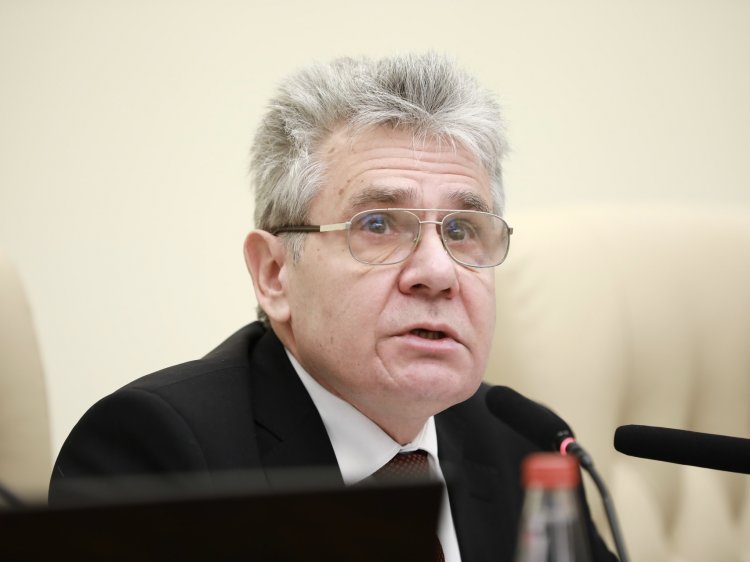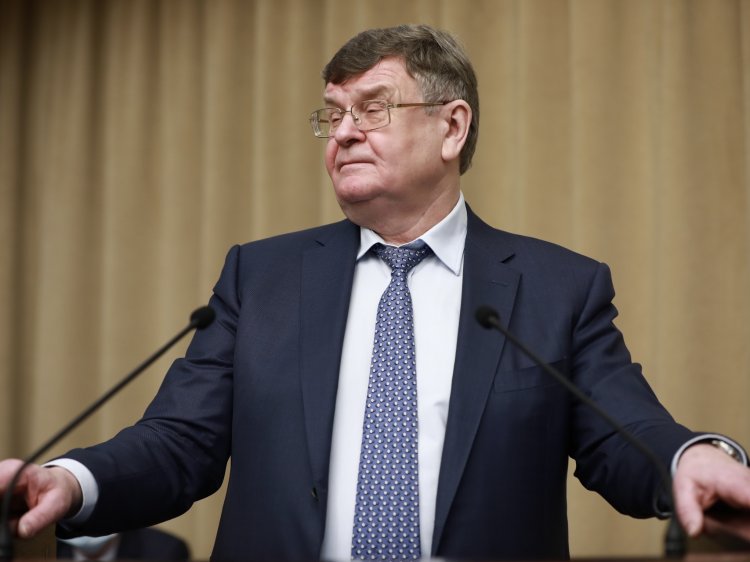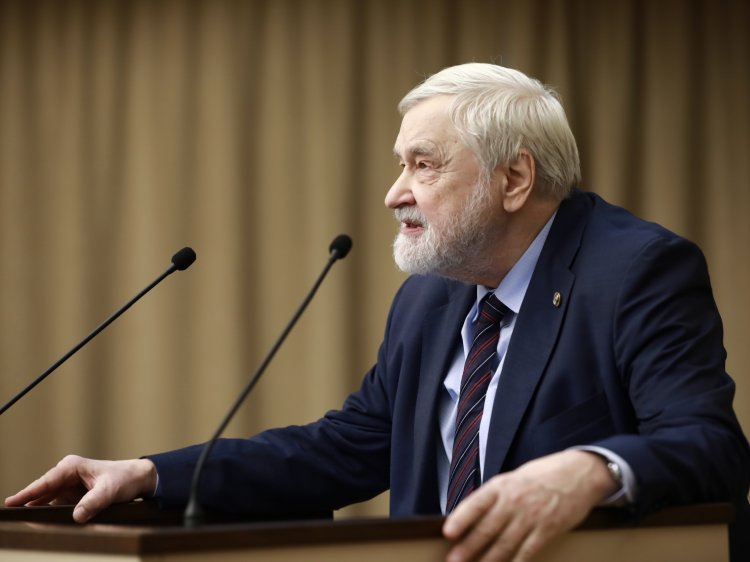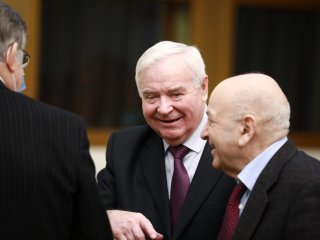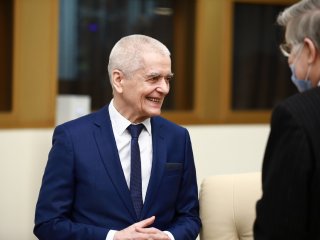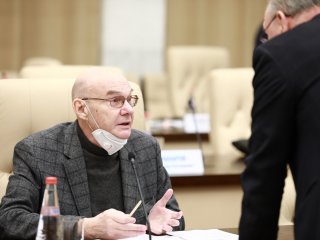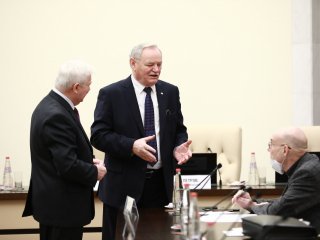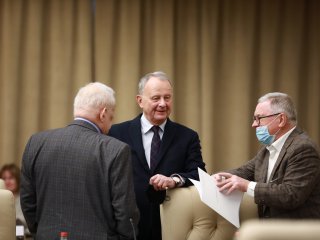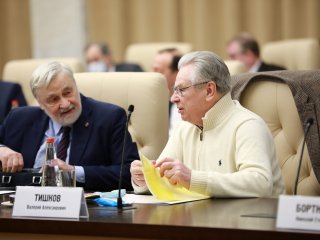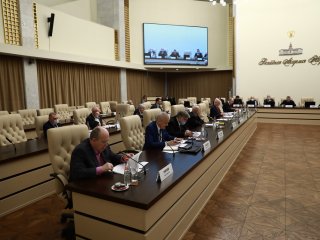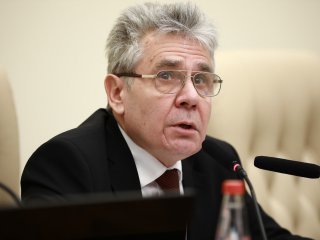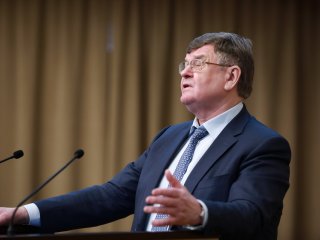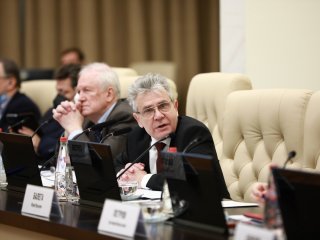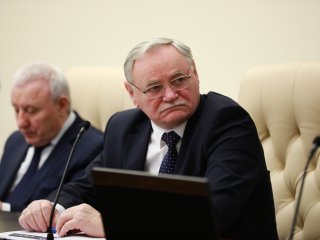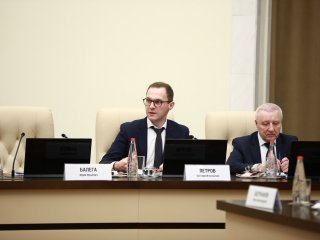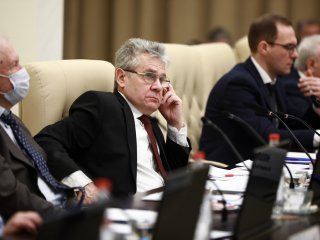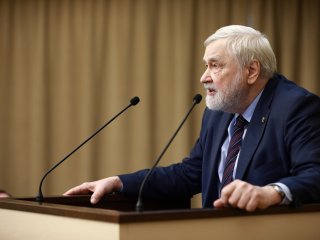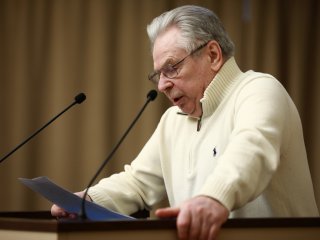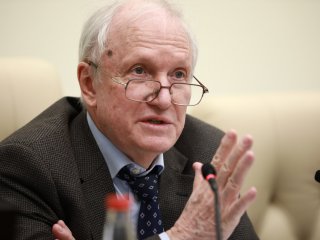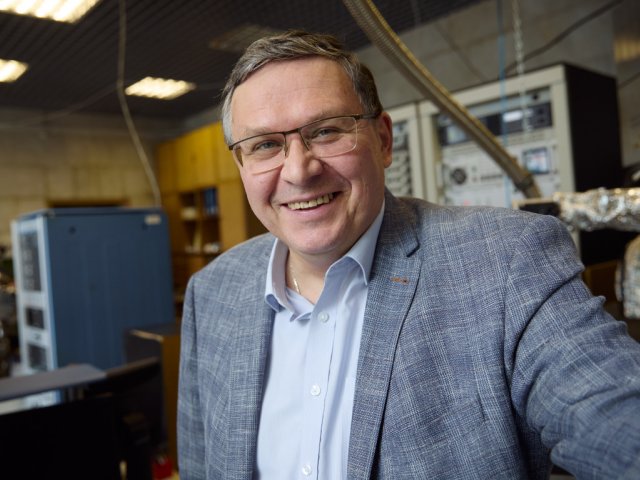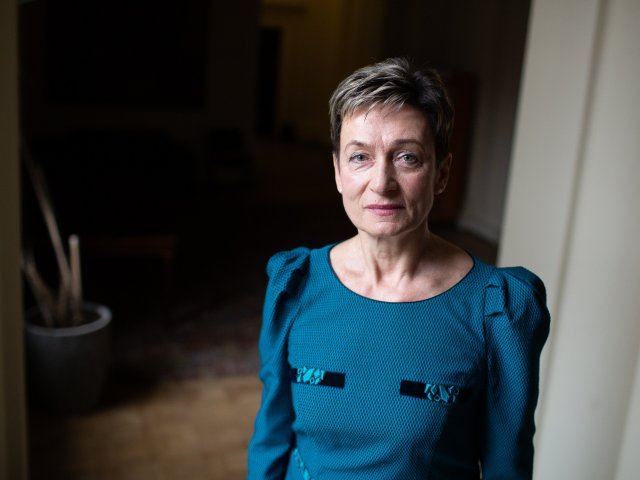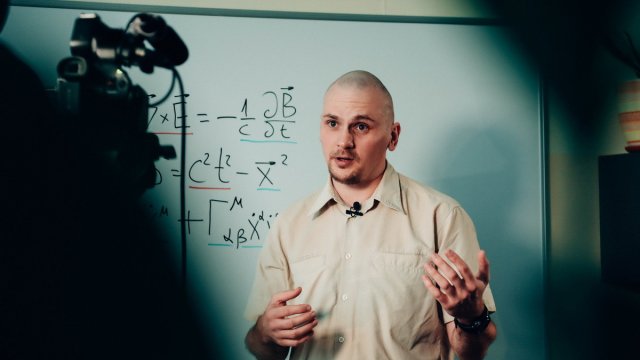January 25, an online meeting of the Presidium of the Russian Academy of Sciences was held. The main topic: "Marking the 175th birth anniversary of the late president of the Russian Academy of Sciences A. P. Karpinsky".
Oleg Vladimirovich Petrov, corresponding member of the Russian Academy of Sciences, General Director of the A. P. Karpinsky Russian Geological Research Institute, and Vladimir Semyonovich Sobolev, Doctor of History, St. Petersburg branch of S.I. Vavilov Institute for the History of Science and Technology of the Russian Academy of Sciences, – talk about the first president of the Academy of Sciences of the USSR.
Live text broadcast:
RAS Persident A. Sergeev.
Photo: Elena Librik / Scientific Russia
10.04 The President of the Russian Academy of Sciences begins the meeting. He introduces the guests of the event and the topic of the meeting.
10.07 The first topic of the meeting is "Marking the 175th birth anniversary of the late president of the Russian Academy of Sciences A. P. Karpinsky". The President of the Russian Academy of Sciences Alexander Sergeev explains the importance of the topic of the meeting: Alexander Karpinsky was the first elected President of the Russian Academy of Sciences.
10.11 Oleg Petrov, corresponding member of the Russian Academy of Sciences, General Director of the A. P. Karpinsky Russian Geological Research Institute, is speaking.
10.13 "Karpinsky is often called the father of Russian geology, as he was one of the founders of the Geological Committee of Russia and the first elected president of the Russian Academy of Sciences," says Oleg Petrov.
10.15 About the contribution of the A. P. Karpinsky Russian Geological Research Institute to the preservation of the memory of Alexander Karpinsky.
10.18 "This January is not only to mark the 175th birth anniversary of A. P. Karpinsky. On January 31, we will also celebrate the 140th anniversary of the Geological Committee, which A. P. Karpinsky led for 18 years, from the moment of its creation, as a matter of fact."
10.22 "Today, while maintaining the continuity of solving the scientific and practical problems, geological mapping of Russia is carried out at three large-scale levels."
10.29 "The participation of the Academy of Sciences and higher educational institutions in the development of the Russian scientific school of geological cartography is carried out through the activity of the Interdepartmental Stratigraphic and Petrographic Committees, the Paleontological and Mineralogical Societies."
10.33 The President of the Russian Academy of Sciences asks the speaker follow-up questions.
10.36 Head of the Federal Subsoil Resources Management Agency Evgeny Ignatyevich Petrov supplements the speaker: "In terms of method development, we are going through a paradigm shift, we are moving to some more complex deposits."
10.41 Oleg Vladimirovich Petrov comments on the follow-up answers and talks about the introduction of Russian technologies. The President of the Russian Academy of Sciences joins the discussion again, trying to find out why we use foreign technologies when we have Russian ones.
10.49 Evgeny Ignatyevich Petrov explains the scheme of the equipment integration into the technological chain and difficulties of import substitution.
10.52 The President of the Russian Academy of Sciences invites Oleg Petrov to participate in planning activities for the Year of Basic Sciences.
10.58 Konstantin Gennadievich Skachek asks a follow-up question.
11.01 The floor is given to Vladimir Semyonovich Sobolev, Doctor of History, St. Petersburg branch of S. I. Vavilov Institute for the History of Science and Technology of the Russian Academy of Sciences.
11.03 "Alexander Petrovich Karpinsky was the president of the Russian Academy of Sciences from May 15, 1917, to July 15, 1936. The time of his presidency coincided with a very difficult period in the history of our country – these were the years of the civil war, radical transformations, and major upheavals in all areas of government and society," says Vladimir Sobolev.
Oleg Petrov is speaking.
Photo: Elena Librik / Scientific Russia
11.13 Answering the question about a glorious page of the successful interaction between the government and academic science in the time of Alexander Karpinsky. "That was the time when the country achieved great results," says Vladimir Semyonovich.
11.17 The president of the Russian Academy of Sciences explains the question that arose in his mind. "Recently, we have been developing such relations with businesses and industry, which show that the Academy of Sciences is becoming more and more in demand, and we are discussing mechanisms we could use to demonstrate this demand."
11.20 Academician of the Russian Academy of Sciences Andrey Zabrodsky asks the speaker a follow-up question about Alexander Karpinsky's courageous act of relocation at the age of over 80. Why did he not leave the Academy of Sciences, but instead, relocated from St. Petersburg to Moscow?
11.26 "The relocation of the Academy of Sciences was one of the many facts of the "global" centralization of the country’s life. It took a lot of effort for the authorities to persuade the president to move to the capital," says Vladimir Sobolev.
11.30 The president of the Russian Academy of Sciences shares his thoughts on the relocation of the Academy of Sciences to Moscow. In his opinion, it was also done for the sake of security.
11.33 The President of the Russian Academy of Sciences gives the floor to Evgeny Ignatyevich Petrov who will read the welcome address by the head of the Ministry of Natural Resources and Environment of the Russian Federation Alexander Alexandrovich Kozlov.
11.38 Head of the Federal Subsoil Resources Management Agency (Rosnedra) Evgeny Petrov continues his speech. He talks about the origins of the Russian school of cartography and how it received recognition.
Alexander Gliko.
Photo: Elena Librik / Scientific Russia
11.42 Alexander Olegovich Gliko, member of the Russian Academy of Sciences, geophysicist, is speaking. His report on the authority of A. Karpinsky's personality: on scientific and moral authority.
11.45 "Let's turn to Alexander Karpin’s letters and speeches. Nothing would give us a better and more correct view of his personality." Alexander Olegovich cites several passages.
11.57 "When we talk about A. Karpinsky, we talk about a great man, a great citizen, who made acts of both scientific and moral heroism," says Alexander Gliko.
11.58 The floor is given to Valery Alexandrovich Tishkov, Academician of the Russian Academy of Sciences. "The Academic Trial, which primarily affected representatives of the humanities, in many ways broke down the Academy, but not the President of the Russian Academy of Sciences himself. A. Karpinsky turned out to be too hard for the Bolsheviks," says the speaker.
12.02 "President A. Karpinsky was a kind of buffer between the authorities who neglected the independence of science and the members of the Academy who entrusted him their fate and relied on him as a guarantor of, if not independence, then at least of their personal physical integrity."
12.08 The floor is given to Valery Charushin, Academician of the Russian Academy of Sciences, Chairman of the Ural Branch of the Russian Academy of Sciences. He began his report by pointing out that the city in the Urals where Alexander Petrovich Karpinsky was born is now called Karpinsk.
12.16 The President of the RAS thanks the speakers.
